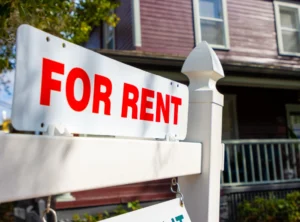
Why It’s Never Been Harder to Be a Landlord
The role of a landlord has always come with its challenges, but as we move into 2025, it has arguably never been more difficult. A combination of high insurance costs, razor-thin margins, and outdated business models are pushing many landlords to the brink, forcing them to reevaluate their strategies. Meanwhile, inflation has made it harder for tenants to absorb rent increases, leaving landlords in a precarious position.
In a market defined by economic volatility and rising costs, landlords need to consider new approaches if they want to survive—let alone thrive.
Rising Costs, Shrinking Margins
One of the primary challenges landlords face in 2024 and heading into 2025 is the skyrocketing cost of property insurance. Due to climate change, natural disasters, and increased risk factors, insurance premiums have spiked. Add to this the rising costs of maintenance, utilities, and taxes, and it becomes clear that the financial burden on landlords has grown significantly.
In previous years, landlords could offset increased expenses by passing the costs on to tenants in the form of rent hikes. Though, with inflation taking a toll on the average renter’s budget, this is no longer a viable option. The cost of living—including groceries, gas, and basic necessities—has already made it difficult for many people to make ends meet. Raising rent in this climate could lead to higher vacancy rates, making it harder for landlords to cover their costs.
To make matters worse, many property management business models and technologies are outdated and don’t provide landlords with new revenue streams. These older models rely heavily on rent as the primary source of income. In today’s competitive real estate market, this is simply unsustainable.
The Need for “New”
Given these challenges, landlords and property managers are at a crossroads: how can they continue to operate and thrive in such a tough environment? The answer lies in embracing new technologies and alternative revenue strategies. PropTech, or property technology, has emerged as a game-changer, offering landlords and property managers a lifeline through data-driven insights, operational efficiencies, and new income opportunities.
Next-gen property management platforms like Revela can help landlords reduce their reliance on rent increases by offering new services and revenue streams that benefit both tenants and owners. These platforms can provide the tools and expertise to navigate today’s market challenges while preserving—and even increasing—net operating income (NOI).
How Revela Empowers Landlords with Tech and Team Solutions
Revela’s blend of technology and human support helps landlords build a sustainable path to profitability without alienating tenants in a time when every dollar counts. The future of real estate management lies in adaptation, and those who choose to evolve early on will reap major returns.
Here are three ways Revela stands out in helping landlords and investors across all portfolio sizes:
-
Read the Tea Leaves & See Around Corners: Revela’s operating system is anchored in robust data insights, allowing landlords to anticipate market trends and make informed decisions. By partnering with the right PropTech company, landlords can leverage these insights to craft strategies that are both reactive to current market conditions and proactive for future growth.
-
Offer Tenants Solutions Instead of More Stress: In a time where rent hikes are no longer sustainable, Revela helps landlords increase revenue by offering residents value-added services. By integrating services such as renters insurance, credit reporting, and rewards credit cards, landlords can increase tenant satisfaction and generate additional income. These services are beneficial to tenants, providing them with real value rather than adding stress through hidden fees or additional costs.
-
Diversify Revenue with Financial Products: Revela offers solutions beyond property management, helping landlords tap into alternative revenue streams. These include banking products like working capital lines, which provide much-needed liquidity to landlords. Additionally, access to cash-back programs on maintenance and supply purchases help address and mitigate the rising costs landlords have faced since 2021.
In an industry facing unprecedented volatility, landlords need to embrace “the new” to protect their bottom lines and ensure long-term resilience. As market conditions continue to shift, adopting technology that fosters growth, operational efficiency, and tenant satisfaction is key to thriving in this new era of real estate management.
Curious about Revela? Schedule your demo now to get started.













 Accessibility
Accessibility